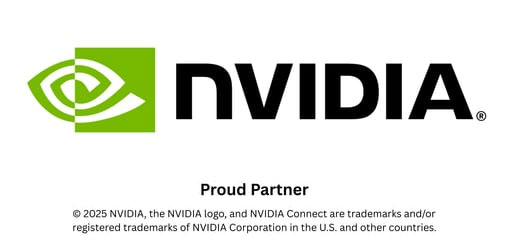We’re at a critical juncture where AI’s insatiable need for data and the GDPR’s robust privacy demands seem at odds. Yet, there’s growing evidence that pairing AI with blockchain may not only reconcile this tension, but it could redefine data privacy altogether.
The Promise of Blockchain for Privacy
Blockchain offers key privacy advantages by design:
Immutability and Transparency – Data stored on a blockchain is tamper‑evident, protecting its integrity and creating clear audit trails, essential for GDPR compliance. computer
Decentralisation – By avoiding data silos under a single operator, blockchain can give users greater control over who accesses their data and when.
Selective Disclosure – Emerging frameworks, such as Ethereum’s modular approach, enable personal data to be segregated off‑chain while still leveraging transparent on‑chain metadata. cointelegraph
That said, current EDPB guidelines caution against storing personal data directly on-chain due to difficulties with erasure and rectification. Organisations are urged to minimise on-chain data and apply “privacy by design” during architecture planning. edpb

How AI Enhances Blockchain
AI is the missing intelligence layer that amplifies blockchain’s privacy strengths:
Smart Contracts with Smarter Logic – AI can pre‑emptively codify contract clauses, spotting anomalies in usage before execution. sapient
Anomaly Detection – On public ledgers, AI-driven monitoring tools can flag unusual transactions, crucial in sectors like finance and supply chain. inery
Encrypting with Intelligence – AI can manage cryptographic keys dynamically and adjust encryption methods according to context and threat levels, adding adaptive security.
One forward-looking research proposal uses blockchain‑based federated learning to securely share medical imaging data across hospitals, while preserving patient confidentiality. arxiv
Real‑World Use Cases: Healthcare & Identity
Blockchain‑enabled Federated Healthcare AI
Studies have shown how hospitals can train common models on sensitive CT scans without exposing patient data, for example, in COVID‑19 diagnostics. arxivPatient‑centred Data Control
Projects like HIE of One and Block MedCare promise blockchain-based platforms where patients own and authorise access to their records, and AI helps tailor consent workflows. digitalsocietyIdentity Verification
Startups like Neuron are pioneering real‑time blockchain‑AI systems for IoT and M2M identity, critical in Europe’s drive towards data sovereignty. wikipedia
Compliance: A Tightrope Walk Under GDPR

Blending AI and blockchain under the GDPR isn’t straightforward – EDPB stresses the need for:
Data minimisation
Roles clarity: Who is the controller vs the processor?
DPIAs before deployment
Rights enforcement: Ensuring transparency, rectification, erasure – even in decentralised settings. edpb
Legally, the tech is there, but organisational, process and tooling layers still require significant refinement.
Challenges to Tackle
Scale vs Privacy – Blockchain’s log permanence clashes with rights to delete data; modular architectures may help, but require further R&D.
Transparency without Over-Sharing – Even minimal metadata leaks can cross privacy lines; solutions like zero‑knowledge proofs require standardisation.
Tech Complexity & Cost – Federated learning, smart-contract logic, private keys and secure enclaves – this isn’t plug-and-play. Specialist skills and budgets are needed.
Regulatory Gaps – The EDPB is advancing guidelines, and AI‑Office coordination is underway, but until frameworks are stable, uncertainty remains. aoshearman
Why It’s Worth Exploring
Holistic Trust – Users gain both privacy and visibility – they can see when and how their data is used and by whom.
Decentralised Sovereignty – Keeping identities and consent with individuals aligns with the EU’s digital autonomy goals and projects like Gaia‑X. wikipedia
New Business Models – Data-as-a-service platforms, compliant data pools for healthcare or IoT and trusted public‑private partnerships can emerge responsibly.
Final Thoughts
If we want AI to thrive in Europe, under strict GDPR and in the service of individuals, melding it with blockchain remains an interesting option.
Yes, there are technical and legal hurdles to cross. But the foundational work is underway and pilot programmes across healthcare, identity and supply chains are already proving the concept. We need multidisciplinary skills, regulatory clarity and genuine investment in the underlying frameworks.
Is the AI‑blockchain future privacy‑proof? This intersection isn’t a silver bullet, but it may well be the blueprint for Europe’s next chapter in digital sovereignty and trustworthy AI.
Victor A. Lausas
Chief Executive Officer
Subscribe to North Atlantic’s email newsletter and get your free copy of my eBook,
Artificial Intelligence Made Unlocked. 👉 https://www.northatlantic.fi/contact/
Discover Europe’s best free AI education platform, NORAI Connect, start learning AI or level up your skills with free AI courses and future-proof your AI knowledge. 👉 https://www.norai.fi/





